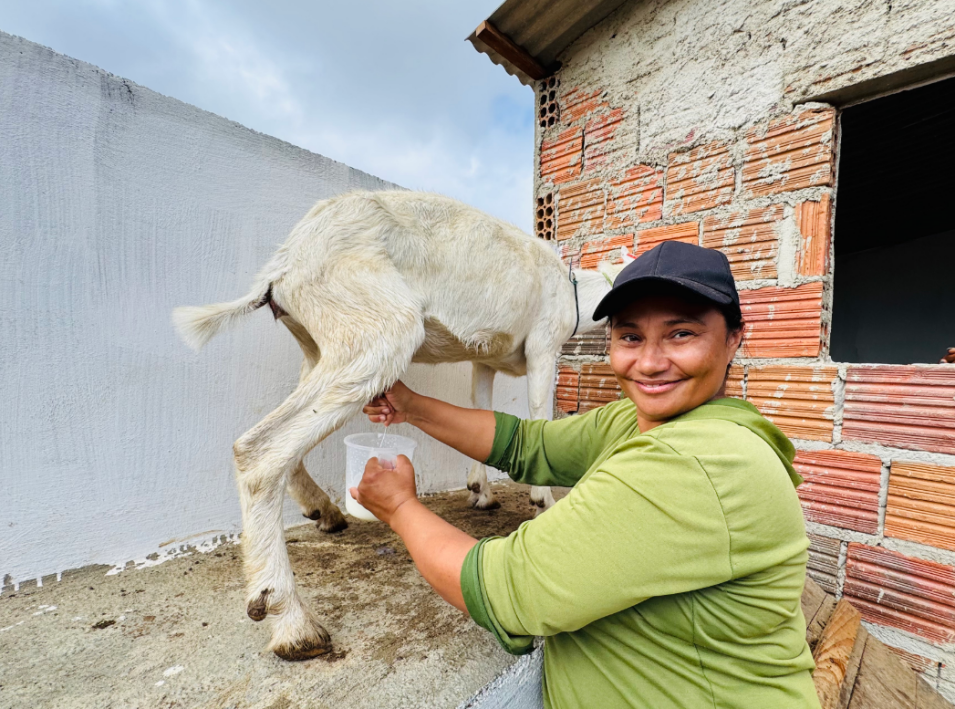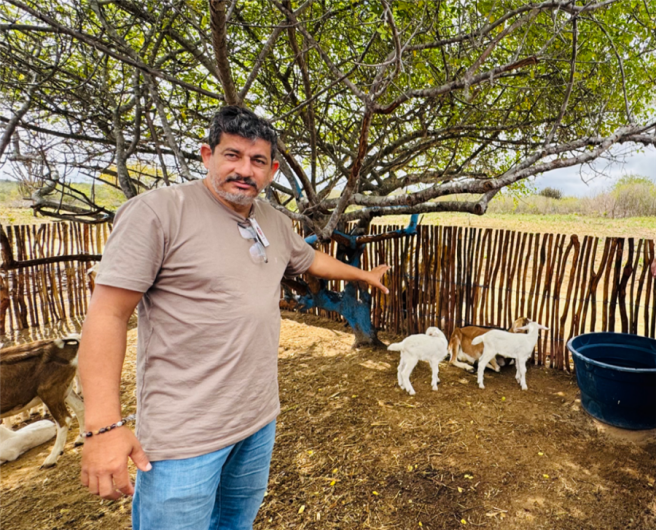From November 10 to 21, the UN Climate Change Conference (COP30) will be held in Belém, the capital of Pará State in Brazil’s Amazon. Clean energy and green development are key topics on the agenda.?
A case in point is CTG Brasil’s Serra da Palmeira?(SDP)?wind complex,the largest overseas greenfield wind power project developed by CTGI?in Brazil. In addition to?supplying clean power to local communities, the project’s social investment program is helping foster a local “goat-milk economy” for farmers?nearby.
“Our community is in an arid and impoverished region. The barren land?and limited technology have left many families in a vulnerable state,” said Diana Barbosa, a community leader?near Nova Palmeira. She told reporters that with local government support, a goat-milk business initiative—launched by CTG Brasil and the local organization Instituto Meio—is helping people?to increase their income. Barbosa is one of the first beneficiaries of the goat?milk initiative.

?Paraíba State has sparse vegetation, with cactus among the few plants that thrive in the dry climate. Goats, which feed mainly on cactus, are well adapted to the area. The local strong appetite for goat milk cheese has helped to create a favorable environment for the goat-milk economy.??
As one of the first families to join the project, Barbosa saw?the number of?her goats?grow quickly from 4 to nearly 20, producing about 5 liters?of?milk per day. With the help?from Instituto Meio, she now plans to increase her?income through processing and sales. “By adding?goat milk into?jams, we add?value?to it,” Barbosa explained. “Whether raising goats or making jam, life is improving for everyone involved.”??
“One kilogram of goat milk sells for only 4.8 reais?(about 6.5RMB),?but?when?processed?into?cheese,?just?200?grams?can?sell?for?55?reais?(about 75RMB). The market potential is substantial,” said Karlkson Oliveira, a technical project leader at?Instituto Meio.?

?Oliveira outlined the project’s three-phase approach: first, providing technical training for goat breeding and dairy processing;?second,?building a?supply chain by integrating resources from?Instituto Meio?and local trade associations to coordinate production;?and third,?introducing?a digital management system?to monitor production data in real time and optimize breeding and processing.??
“Daily milk yield per household could soon increase by another 2 to 2.5 liters. The project will also be incorporated into the local government’s agricultural support plan to enhance long-term competitiveness and sustainability,” Oliveira added.
“The?SDP?wind?complex?has brought clean energy and job?opportunities and we hope to see more projects like this,” said Claudino Castro, leader of the Oriodágua community.
The SDP wind complex, with a total installed capacity of 648 MW, began its construction in October 2023. It is designed to generate up to 2.554 billion kWh annually—enough to power approximately 720,000 local households—while saving about 779,000 tonnes of standard coal and reducing CO? emissions by about 2.125 million tonnes each year. The project reached its full?commission?early October this year, optimizing?the energy matrix in northeastern Brazil.?
Since March 2024, CTG Brasil has been implementing the?income-generation program in Paraíba, the host community of the SDP wind complex. The goat-milk economy?is one of the local productive initiatives.?To date, it has expanded to 5?surrounding communities, involving 69 families and about 300 residents.







 print
print

